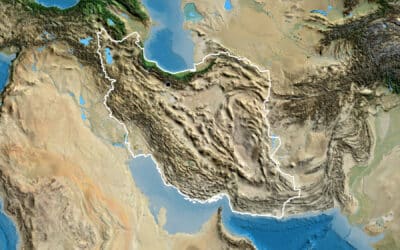This Pride Month, like many before it, some libertarians are sharing the slogan “Liberty is Inclusive.” The slogan is meant to affirm the idea of equality, not only in the law, but also in how people treat one another outside of legal arrangements. Is this consistent with libertarian ethics?
No. Liberty is inherently exclusive, not inclusive.
The most consistent brand of libertarianism, Rothbardianism, holds that homesteading is the ultimate criterion for justice. Murray Rothbard comes to the conclusion that we own ourselves and any resources we first use or acquire voluntarily by virtue of homesteading. He expands on this theory of social ethics in his book Ethics of Liberty. Where does inclusion come into play? It doesn’t.
The principle of homesteading or first use establishes private property in oneself and property. This is an exclusive. Libertarianism thus starts from the premise of exclusion, not inclusion. Others can be legitimately included in the ownership of the resource after it is first used, but the first user must consent. If not, then the first user retains a full, exclusive right to said resource. We thus have a right to arbitrarily discriminate as to who is allowed to use our property, patron our business, and utilize our labor. We are free people, and what that means is that we are free from having our rights encroached on by others.
Does a gay couple have a right to the labor of a baker to make a wedding cake? No. Does a university have a right to silence speech that they don’t like? Of course. Should a pastor marry a gay couple? It’s up to them. To answer any of these questions to the contrary is to be opposed to liberty, but in favor of inclusion. If the inclusion fanatics were serious about inclusion, they should oppose libertarianism for that reason.
“Exclusion amounts to discrimination,” one might say. Yes, it does, but discrimination is a feature of every action one takes. You discriminate between various alternatives all the time. Should I have chocolate chip or vanilla ice cream? You discriminate when you decide on which to eat. Is there anything wrong with that? Not according to the private property ethic. The same goes for all other discrimination, regardless of what arbitrary characteristic is being used to discriminate. We may not like it, but it is completely consistent with private property and libertarian ethics. Economist Walter Block expounds upon this idea of discrimination more in his book The Case for Discrimination.
Let’s take a step back and examine what the value of inclusion means. If inclusion were our prime value, then we would affirm collective property as the necessary precondition of the world. Everyone has a right to everything and cannot be rightfully excluded from anything; however, we know this is both an economically and ethically untenable approach. Economically, it would create a tragedy of the commons. Ethically, it competes with the principle of first use that Rothbard and Hans-Hermann Hoppe have already established.
None of this is to say that inclusion should not be pursued voluntarily. As long as the includer includes others with his justly acquired property, there is no issue. But pursuing inclusion as the prime political value makes liberty instrumental; therefore, is invalid.
As libertarians, we must reject the “liberty is inclusive” mantra. It adds nothing to our political philosophy and jeopardizes private property, the real value we care about.































